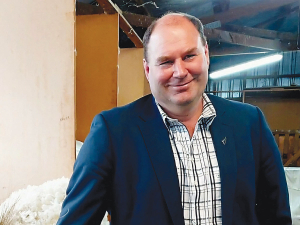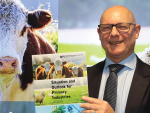A national pest management plan to eradicate Mycoplasma bovis (M. bovis) will come into effect by the end of this year.
The plan, approved by the Coalition Government, was proposed by the programme partners DairyNZ, Beef + Lamb New Zealand, and the Ministry for Primary Industries (MPI). It will shift M bovis accountability from MPI to OSPRI.
Biosecurity Minister Andrew Hoggard says this is a hard-fought step forward for farmers and will provide them with a one-stop shop for disease management and traceability.
OSPRI works with the farming industry to manage animal disease and provides the National Animal Identification Tracing system.
“The move will help take advantage of efficiencies and protect our investment in eradication made to date,” Hoggard says.
“The eradication was estimated to cost $870 million in 2018, a significant investment in our farming sector from the Crown and farmers, who have contributed 32% of the funding.
“It is important we protect this investment and the hard work of all involved, including the sacrifices made by farmers, by ensuring the fit-for-purpose M. bovis Plan is implemented.
“At present we have no infected farms, and we are focused on the national surveillance of cattle. There’s more to do before we reach the end of this journey, and it is possible we will find more infection before we get there but the move to a national pest management plan is another big step forward.
“The plan will ensure that OSPRI has the tools needed to continue to build on the success achieved.
“I want to thank DairyNZ and Beef + Lamb New Zealand for their support. The partnership approach has set this response apart and is a great example of how government and industry working together can achieve better results for all. but most of all I want to recognise the intense stress and emotional toll that has been felt by the farmers that have been caught up in this response”.
M. bovis stats
- Active Confirmed Properties - 0
- Cleared Confirmed Properties - 282
- Properties under Notice of Direction - 8
- Properties under Active Surveillance - 25
- Compensation paid - $285.1 million
- Claims processed to date - 2,961



















